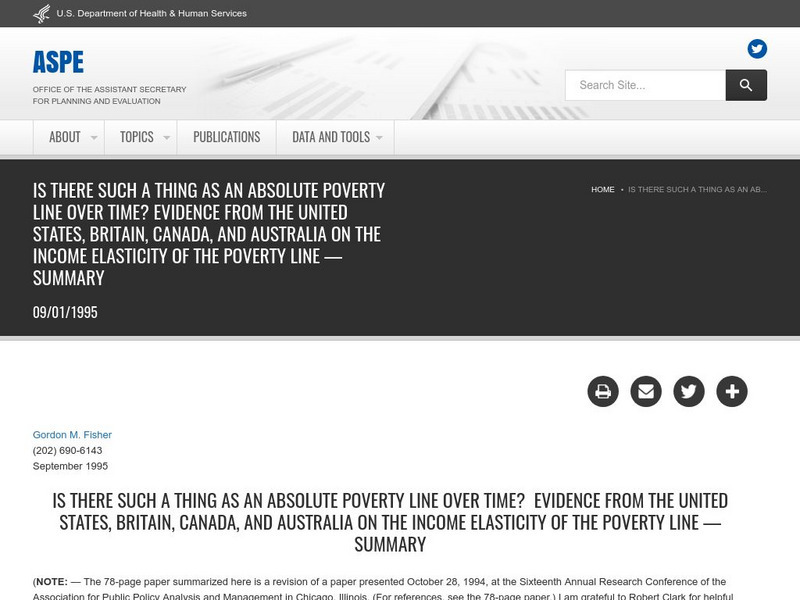Curated OER
Life During the Great Depression
Eleventh graders explore life during the Great Depression and how Americans responded to the problem. Using information discussed, 11th graders complete a flow chart activity depicting the Dust Bowl. After watching clips of movies...
Curated OER
Should Hate Be Outlawed?
Students investigate hate crime legislation. In this hate crime lesson, students examine the St. Paul city ordinance that outlawed hate crimes. Students explore the fine between hate crime legislation and First Amendment rights.
Curated OER
Conversation Lesson: First World Obligation
Young scholars engage in a debate about the obligation each country has to help other countries in need in order to help build their conversation skills. The format of the debate is imbedded in this lesson plan.
Curated OER
Assembly Line Burgers
Students explore the reasons why the assembly line was formed and how it improves productivity. They practice with their own assembly line by making "burgers" out of wafers and frosting.
Curated OER
City Desk with Malcolm X
High schoolers view a film about civil rights and the role Malcolm X played in the civil rights movement. They create a timeling about the events that occured from segregation to integration. They discuss discrimination as well.
Curated OER
G8: A Guide for Schools
Students take a closer look at the G8 Summit of 2005. In this economics lesson, students listen to a lecture about the summit and explore the meaning of terminology related to the topic.
Curated OER
Fidel Castro
In this famous people worksheet, students read a selection about the life of Fidel Castro, then complete a variety of comprehension activities including synonym matches, fill-in-the-blank sentence completions, unscrambling words and...
Curated OER
Race & White Privilege
Students read and analyze the Tomas Rivera novel "...And the Earth Did Not Devour Him." In small groups they select three paragraphs from the text that are relevant to the issues of racism or white privelege, conduct Internet research,...
Curated OER
How Much is There to Eat?
Young scholars research population and food consumption rates for different areas of the world.
Curated OER
Federal Programs And Reform
Students investigate the current welfare system in Utah. They research and discuss the different type of programs that are offered. They conduct an analysis of the reports that are provided. The standard of living is also investigated...
Curated OER
Work And Resistance In America
Students investigate the history and events that surround the industrial revolution. They conduct research using secondary sources. They look reflectively at the history in order to build an idea of how the arts could have influenced the...
Curated OER
The Historical and Economic Impact of the Civilian Conservation Corps in South Carolina
Eighth graders explore the effects of the Civilian Conservation Corps. In this lesson, 8th graders use primary sources to examine how the CCC impacted North Carolina. Students will locate National Parks on a map, write a summary and...
Curated OER
Civics/Current Events Activity for Students in Grades 4 - 7
Students examine the diverse reasons why cultures in other areas of the world often express hatred and resentment of Americans.
Curated OER
Cesar Chavez
In this Cesar Chavez worksheet, learners read about the life of Cesar Chavez, then complete a variety of comprehension activities: a synonym match, phrase match, fill-in-the-blanks, spelling and sequencing. Homework suggestions are given.
University of Wisconsin
Institute for Research on Poverty: How Is Poverty Measured in the United States?
Describes how the United States measures poverty. Includes graphs comparing poverty rates over time, in different states, in different ethnic or age groups, etc.
US Census Bureau
United States Census Bureau: Poverty in the Us [Pdf]
The US census report on poverty published in 2001.
C-SPAN
C Span Classroom: Teaching About Poverty
Learning module in which students use current and relevant information to take a close look at poverty in America, past and present, and examine how the government should address it. Comprehensive multi-media learning materials include...
Other
Childstats.gov
Extensive data, including an annual report that looks at the state of children's well-being in the United States. It examines such issues as family environment, health care, poverty, welfare and how the government is reacting overall to...
Other
Nccp: Who Are America's Poor Children? [Pdf]
Learn the basic facts regarding children in American who are living at poverty levels or below. The numbers of children in poverty appear to be increasing to almost 13 million. The sheet identifies which ethnic groups have the most...
Country Studies US
Country Studies: United States History: The Second New Deal
This site describes how as a result of mounting criticisms and a need for more economic relief and recovery, FDR introduced another series of programs, known as the Second New Deal, aimed at fighting unemployment and poverty and...
Other
Almanac of Policy Issues: Poverty
This site from the Alamanac of Policy Issues provides a general look at poverty in the U.S. based on 1998 figures (the latest available). A good reference for federal poverty threshold figures.
Other
U.s. Dept. Of Health and Human Services: Absolute Poverty Line
At this site from the U.S. Department of Health and Human Services, using evidence from U.S., Britain, Canada, and Australia, this paper argues that absolute poverty lines rise as the real income rises. (Published Sept. 1995)
BBC
Bbc News: Week of 3 11 13: The Children Going Hungry in America
This article about child hunger in the United States features the story of two young children in Iowa who often do not have enough to eat. The article includes a link to charity that helps those in need of food and a brief video. [1:59]
Other
Feeding America
At the online home of one of the largest hunger-relief agencies in America, find extensive reporting and analysis of the problem of hunger in the United States, along with information about its network of food banks, a quiz to test...


















